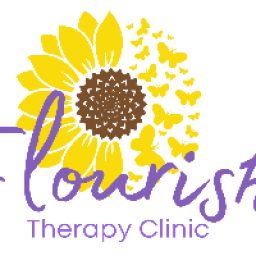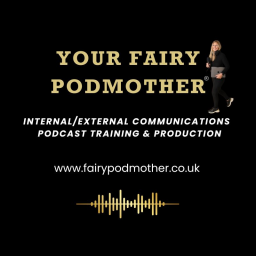How can you tell what’s really going on, when a person refuses
to eat anything except a very limited selection of foods? Are they just being
picky? Going through a phase? Or is it something more serious?
If that person is your child, a friend – or if you have
long struggled to eat anything but a few ‘safe’ foods - and it isn’t due to sickness,
body-image or self-esteem – then this might be a burning question. Read on, to learn the difference between being
‘off’ your food, and having a type of Eating Disorder.
Many young children go through a phase of rejecting food apart
from certain favourites. This could be due to their more sensitive palates
encountering unfamiliar texture or taste, and disliking its strangeness.
Sometimes it is about being distracted and more excited to explore and play than
in the process of eating. Or they might be upset by something entirely
unrelated and in an uncooperative mood. This can go on for weeks or months and
cause parental worry, but young children usually regain their appetite and start
to enjoy new foods, given time and the regular offering of wide variety.
It is also normal for people to forget, or find it difficult
to eat much, during times of unusual business, stress, emotion, or while
recovering from sickness - and when they do eat, to stick to a few comforting
or energy-giving staples, Again, this restrictive phase should pass naturally,
with the alleviation of their problems.
But what if somebody doesn’t return to eating ‘normally’? And
how long should it take?
There is no fixed time-frame, as a return tofull engagement with food will depend upon what has
caused restriction in the first place, as well as individual sensitivity and
temperament. But if you begin to feel that something is wrong - don’t ignore
it. Even if the cause is emotional or circumstantial, a limited diet still means
limited nutrition and could result in health issues, so a gentle reminder or
support in better eating will not go astray. The ongoing problem which is
causing reduced appetite should also be addressed, for the sake of that
person’s wellbeing on many levels.
But if the refusal to eat a range of foods doesn’t seem in
proportion to any explanation, or persists, then an Eating Disorder might be present.
This is a mental illness which can have very serious physical results, and
needs to be recognised so that the person can find support and a way to recover.
Most people are familiar with the term Anorexia, which
involves the deliberate restriction of calories in order to control body image or
supress painful emotions. But while all Eating Disorders involve an unhealthy relationship
with food as a means to cope with difficult feelings and situations, they
manifest in several different ways. Other,
less well-known E.D.s may be more focussed
on the type of food consumed, or the experience of eating in itself…
Orthorexia can occur when a person becomes obsessed
with ‘healthy’ or ‘clean’ eating, to the extent that their fear of being
contaminated by sub-standard nutrition affects their ability to freely choose
foods, enjoy a normal lifestyle, or eat a substantial enough diet.
With ever increasing nutritional awareness and dietary advice, Orthorexia is an Eating Disorder on the rise,
especially among anxious young adults, as people do their best to avoid chemicals or additives or foods with possible inflammatory effects, and eat for better
health. Ecology, fair trade, animal rights and other more ethical concerns are other examples of factors which can be drawn into an intense preoccupation with the quality or type of food people will eat. This can lead to a psychological and emotional disorder fixated on a very exclusive diet and fear of consuming anything else. Responsible and healthy choices
can, in some vulnerable individuals, become fenced around with rules and fears, leading to the rejection of nourishment
needed by both the body and the mind.
If you have Orthorexia, treatments such as Cognitive
Behavioural Therapy (CBT), Psychotherapy, and the detailed personal support of
a Specialist Dietician with experience in eating disorders, can help you to
reconcile ideals with reality, and turn from anxst-driven obsession to a
healthier relationship with food.
Then there is Avoidant Restrictive Food Intake Disorder –
otherwise known as ARFID.
ARFID is the limitation of food – or sometimes drink - because
of an inability to tolerate several different textures, or tastes, or due to a fear
of choking or vomiting. It can be provoked by high sensory sensitivity present
from birth (it is more common amongst people with Autism or Sensory Processing Disorder
than the neurotypical population, and much more commonly diagnosed among
children than other eating disorders). These conditions can make the taste or
texture of food much more intense than it is for most people.
ARFID can also be brought on by a trauma or obsessive anxiety
associated with eating or drinking – such as a near-choking experience. Obsessive
Compulsive Disorder (OCD) and various phobias are quite common co-morbidities, as
they contribute to the restrictive attitude or fears of food or liquid intake.
For people with ARFID, though they may have a healthy
appetite and no abnormal concerns around body-image, eating foods they are not
comfortable with might seem an impossibility. This illness can turn the normal
and enjoyable experience of eating and drinking, into a nightmare of fear and
conflict. It is not being fussy, it is a very deep-wired reaction which means
they cannot make themselves put the ‘unsafe’ substances in their mouth and
swallow. Forcing them to do so can be traumatizing. What is needed to recover
from such an automatic response to normal processes, is an investigation into
the reason for their difficulties, and then careful treatment of any causative trauma,
together with slow and gentle re-education of the senses and very gradual exposure
until they can tolerate a much wider range of food. A person with ARFID needs
to rebuild a positive and trusting relationship with eating itself. For all of
this, professional help is advised.
Whilst some people with ARFID can take steps in recovery
alone, or supported by those close to them - by learning all they can from
reliable sources, and engaging carefully with both challenges and self-soothing
practices – it is strongly recommended to seek clinical help. Time, in
Recovery, is of the essence, and the advice and support of a Psychotherapist and
Dietician specially trained in the area, working in co-ordination, can be
invaluable in making progress towards enjoying food and a normal life.
Types of therapy especially successful in the treatment of
ARFID include Eye Movement Desensitisation and Reprocessing (E.M.D.R) and Clinical Hynotherapy to treat underlying
trauma, and sensory-based psychotherapies such as Creative Therapy, Art Therapy,
or Play Therapy for children. Cognitive Behavioural Therapy is also very helpful
in teaching skills and thought processes to identify triggers, cope better, and
reprogramme the cycle of reaction to fear-foods.
If you know someone who needs advice or support in dealing
with an Eating Disorder, Flourish Therapy Clinic is always available
with a whole team of experienced clinicians, including Specialist Dieticians,
an EMDR and Hypnotherapy practitioner, a Creative / Art / Play therapist, CBT
counsellors, and a Movement Psychotherapist, as well as specialist Eating
Disorder Coaches. We have no waiting lists, no admission criteria, and are
ready to help those who reach out as quickly as we can, with a Care package
designed especially to meet each client’s individual needs. Don’t hesitate to
reach out! Call us on 01772915735 or contact through the website www.flourishtherapyclinic.co.uk.
 RKMS
RKMS









